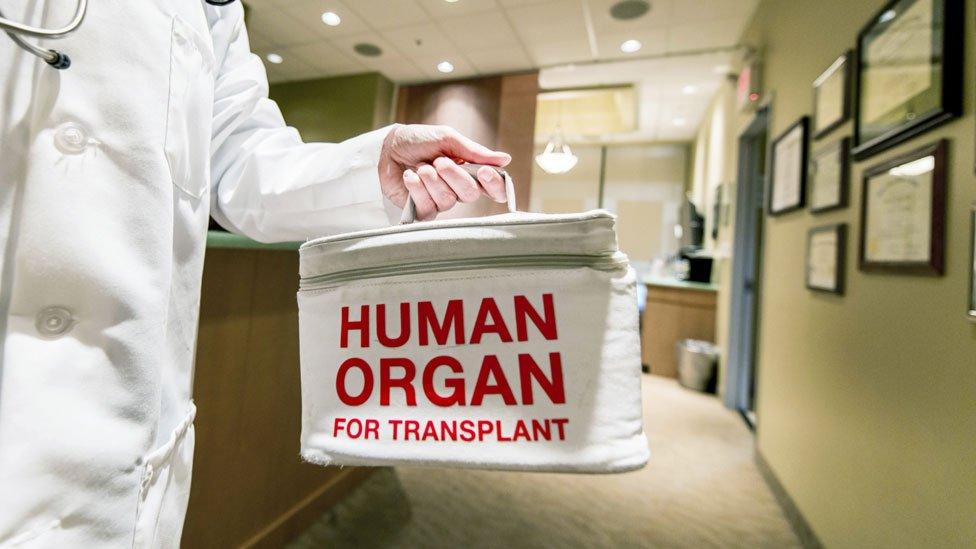'I hope someone gives my life back to me'
- Published
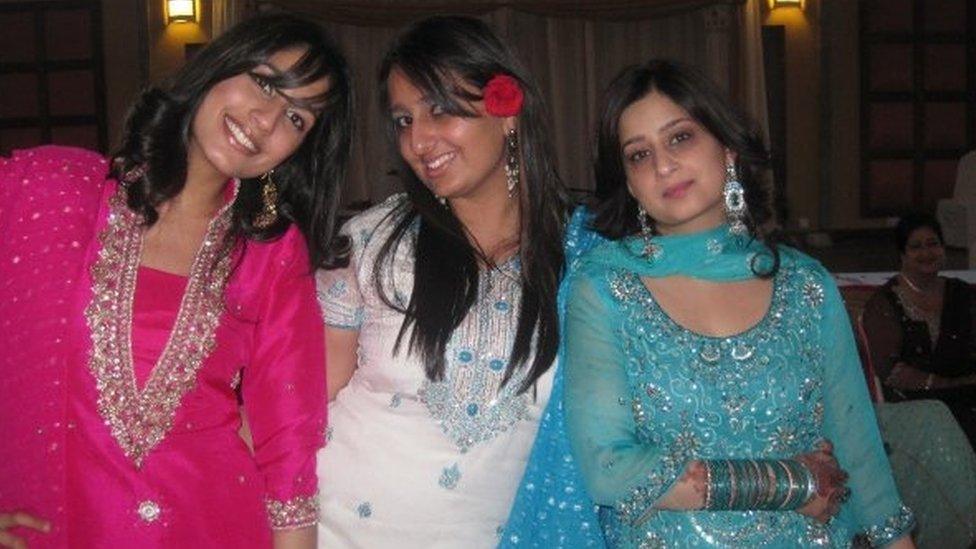
Sabina (far right) had kidney failure when she was a baby and has had health problems since
Three times a week, Sabina Saeed, 36, spends several hours hooked up to a machine which cleans her blood and keeps her alive - but she hates it with a passion.
The routine means she can't work, she can't travel, her diet is restricted and she feels tired all the time.
"I try not to think about it. It's keeping me alive but it's not something I enjoy," she says.
"I hope someone gives my life back to me."
Sabina got in touch with BBC Lifestyle and Health Facebook page, external because she is on the waiting list for a new kidney - a gift which would enable her life to start again - but she has been told it could be a long wait, possibly up to five years.
She is one of 4,958 people currently waiting for a kidney transplant in the UK.
As a result, for the past two years, Tottenham Hale Kidney and Diabetes Centre has been her lifeline.
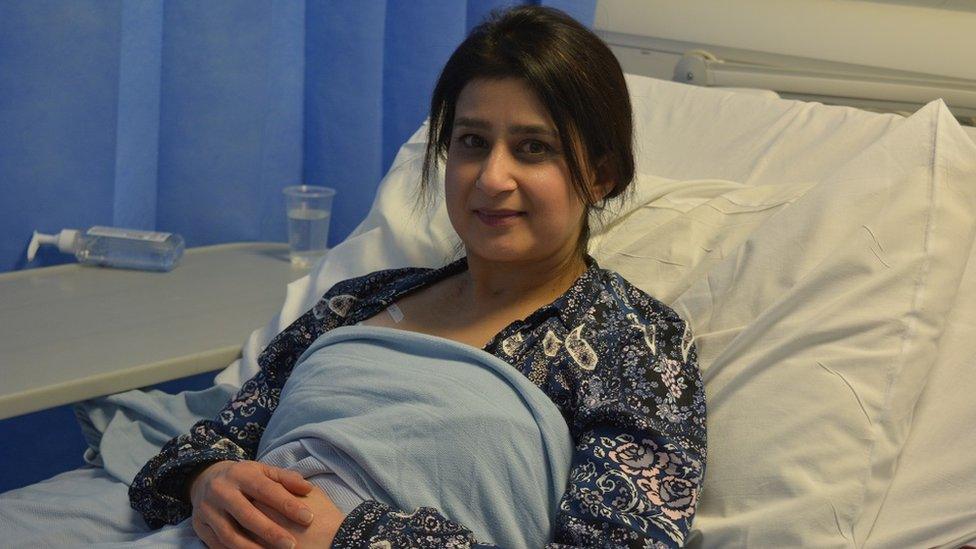
Sabina has been on dialysis for two years which means going for treatment every second day
This is where a dialysis machine filters her blood every second day, replacing the vital work of the kidneys which she no longer possesses.
Sabina had kidney failure as a baby. She received one of her mum's kidneys when she was 18 but that has now stopped working and no other family members can donate - not even her twin sister is a match for her blood group A+.
A new kidney would mean everything, she says.
"It would mean getting back to a normal life - to working at the beauty salon I used to run.
"I want to enjoy life, I'd love to find a life partner but at the moment I am just sitting at home, getting tired all the time."
Patients from black and Asian communities, like Sabina, make up nearly 30% of people on the transplant waiting list yet only 6% of deceased donors are black and Asian.
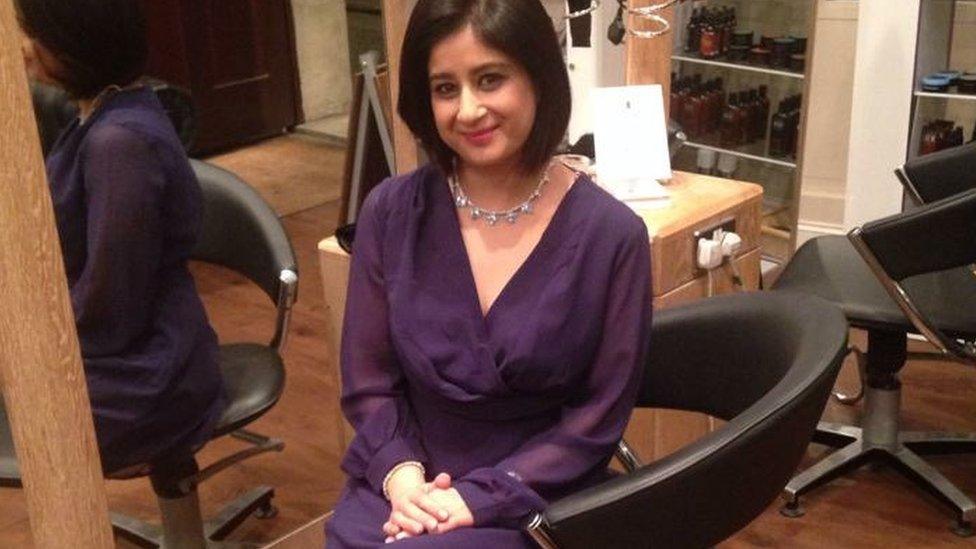
When she was well, Sabina ran a beauty salon in central London
That makes the task of matching donor organs to recipients more difficult because people from the same ethnic background are more likely to be a match.
Although waiting times have improved in recent years, NHS Blood and Transplant says more ethnic minority donors are needed - particularly living donors,, external because they increase the chances of transplantation being a success.
Last year, fewer than 100 black and Asian people donated a kidney to a relative or friend or to someone they didn't know.
Sabina has a theory about what stops people considering kidney donation., external
"People get scared about taking time off work and falling ill... but you don't have to worry because doctors are there to look after you."
Research suggests some people don't want to worry their families and assume they are too old to donate, but there is no upper age limit for kidney donation and a healthy person can live a completely normal life with one kidney.
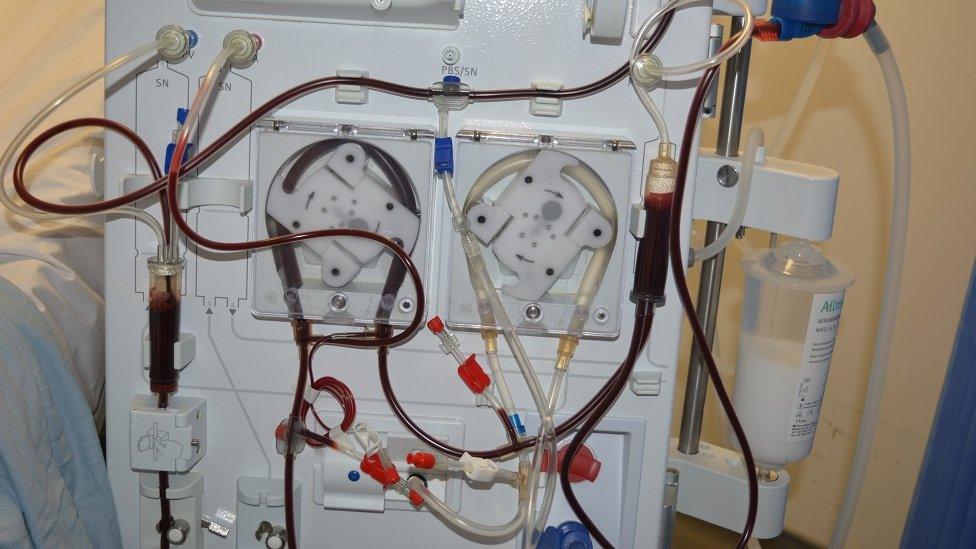
A dialysis machine cleans Sabina's blood - a process which keeps her healthy
Sabina's frustration is clear - and sometimes she feels down - "but I keep it within me", she says, for fear of burdening her family who already do so much for her.
Seeing a psychologist every three weeks at the centre, run by the Royal Free London NHS Foundation Trust, helps Sabina cope but it's still a very lonely and uncertain existence.
She also can't eat what she wants - potatoes, crisps, salt, chocolate and fruit are all to be avoided to prevent a build-up of fluid and waste in her system.
And she is restricted to drinking 500ml of fluid a day, making her feel thirsty in summer and self-conscious if out with friends.
"If I am thirsty, I have ice - I just suck on it."
But she still craves spicy food all the time - "I want everything with Tabasco."
NHS Blood and Transplant figures show that in 2016-17, 470 people died while on the transplant waiting list or within one year of coming off it.
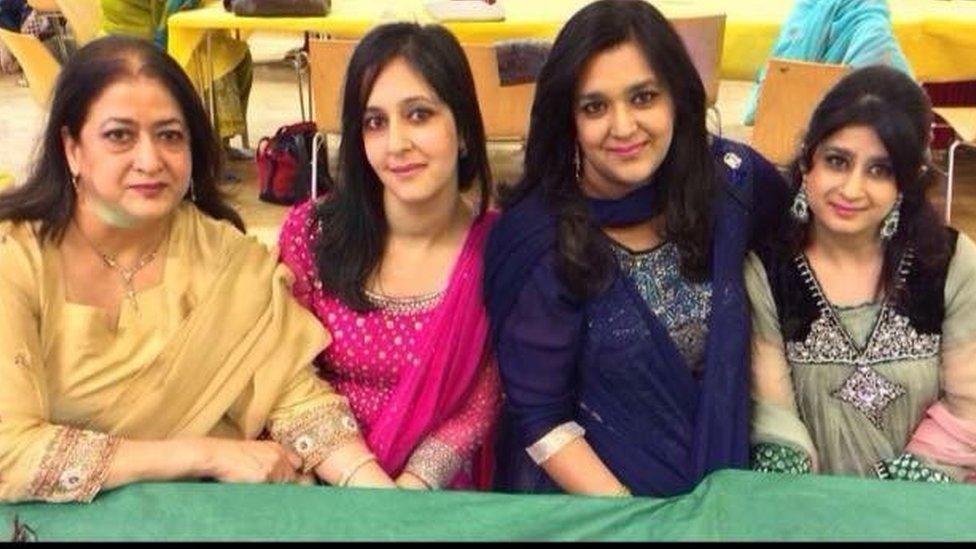
Sabina wants all communities to start talking openly about organ donation
Does that worry her?
"I try to be positive, otherwise I'd go mental, you know. But sometimes I cry to my mum," she says.
Although most people say they support organ donation, less than half have actually talked about it with their families - and among black and Asian adults, only one in three have had a conversation about the issue.
Sabina's dream is that everyone starts opening up and discussing the gift of organ donation., external
"You are saving someone's life - and you can't give a better gift than that."
- Published12 December 2017
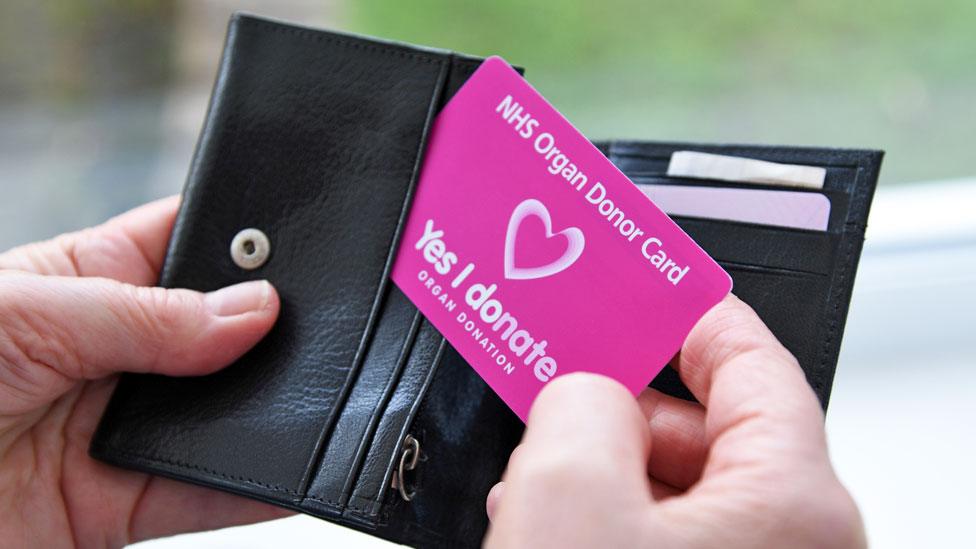
- Published11 July 2017
